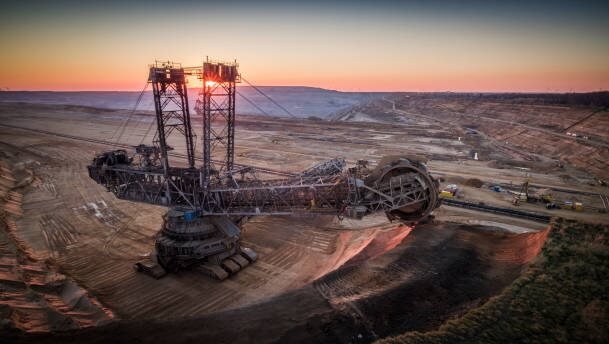Selling mineral rights involves transferring ownership of the rights to extract minerals, such as oil, gas, or metals, from a property to a buyer in exchange for a negotiated sum of money. It is a legal transaction that can provide immediate financial benefits, but it also means forfeiting any future potential profits from the minerals that may be extracted. It’s important to thoroughly research and consider all options before making a decision to sell mineral rights. The following are some of the factors that influence the value of mineral rights.
The Type Of Minerals
When selling mineral rights, the type of minerals present on a property can have a significant impact on the value of the mineral rights. Some minerals, such as gold or platinum, are rare and have high demand in the market, making them more valuable. Other minerals, such as sand or gravel, may be abundant but still have value due to their use in construction and manufacturing.
Oil and gas are among the most valuable minerals, as they are in high demand and are critical for energy production. The amount and quality of oil and gas reserves present on a property can greatly influence the value of the mineral rights. Similarly, the presence of other minerals, such as copper, zinc, or lithium, can also impact the value of the mineral rights, depending on the current demand and market conditions for those minerals.

The Amount Of Minerals
The amount of minerals present on a property is a critical factor in determining the value of mineral rights. Generally, the greater the amount of minerals, the more valuable the mineral rights. The type of minerals present and their quality can also influence the value. Some minerals are more valuable than others, such as gold or diamonds, and minerals of higher quality may command a higher price in the market. Additionally, the cost of extraction, processing and transportation must be considered when assessing the value of mineral rights. If the cost of extracting and transporting the minerals is high, the value of the mineral rights may be reduced. Ultimately, the amount and quality of minerals present on a property will play a critical role in determining the value of the mineral rights.

The Location And Accessibility Of The Property
The location and accessibility of the property are important factors in determining the value of mineral rights. Properties located in areas with abundant natural resources and favourable geology are likely to have more valuable mineral rights. Additionally, properties that are easily accessible via existing infrastructure, such as roads, pipelines, and railroads, are generally more valuable than those in remote areas. Other factors that can affect the value of mineral rights include the type and quantity of minerals present, the mining methods required, and the prevailing market conditions.

Current Market Conditions For The Minerals
Current market conditions for minerals play a significant role in determining the value of mineral rights. The price of minerals is subject to supply and demand forces, and fluctuations in the market can greatly affect the value of mineral rights. When demand for a particular mineral is high and supply is low, the value of mineral rights associated with that mineral will increase. Similarly, if the market is flooded with a surplus of a particular mineral, the value of mineral rights will likely decrease. Market conditions are influenced by a range of factors, including global economic trends, geopolitical events, technological advancements, and environmental regulations, among others. It’s essential to keep track of these factors to determine the value of mineral rights accurately.

The Terms Of Any Existing Lease Agreements
The terms of any existing lease agreements can have a significant impact on the value of mineral rights. If a property is subject to a lease agreement with a mineral rights holder, the owner of the property may have limited rights to exploit those minerals until the lease agreement expires or is terminated. The terms of the lease agreement can determine the duration of the lease, the amount of royalty payments, the permitted mining methods, and other factors that can affect the value of the mineral rights. If the lease agreement is favourable to the mineral rights holder, such as with high royalty payments or a long lease term, the value of the mineral rights may be reduced. Conversely, if the lease agreement is favourable to the property owner, such as with low royalty payments or a short lease term, the value of the mineral rights may increase. The terms of any existing lease agreements should be carefully reviewed when assessing the value of mineral rights.
In Summary
The value of mineral rights is typically determined by several factors, including the type and amount of minerals present, the location and accessibility of the property, current market conditions for the minerals, and the terms of any existing lease agreements. A professional appraiser or mineral rights broker can assist in determining the value of mineral rights by analyzing these factors and considering recent sales of similar mineral rights in the area. It’s important to have a clear understanding of the potential value of the mineral rights before negotiating a sale, to ensure that you receive fair compensation for the property rights you are relinquishing.












